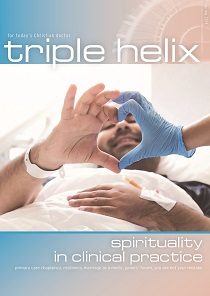When Marcus Evans quit his governorship of the Tavistock and Portman NHS Trust in February this year, it was over the 'climate of fear' and attempts to 'dismiss or undermine' concerns being raised by its own clinicians. While many of his claims are contested, an independent report backed up some of his concerns. (1)
The Tavistock Centre is one of only two clinics in England managing children presenting with gender dysphoria. In the last eight years, the number of children being referred has gone through an exponential increase from around 200 in 2011 to over 2,000 in 2017. (2)
One of the first stages of treatment is the use of so-called puberty blocking drugs, usually early in adolescence. However, the clinical evidence for both the efficacy, safety and long-term health impacts (physical and mental) for treatment with Gonadotrophin-releasing hormone agonists (GnRHa) is poor. Most studies have been small, lacked a control group and lost a significant number of patients to longer term follow up. A recent clinical summary in the BMJ concluded that 'The current evidence base does not support informed decision making and safe practice.' (3)
Blocking puberty seems to increase the desire to identify with the non-birth sex, while not intervening with GnRHa sees roughly 75% of those children presenting with gender dysphoria naturally resolving their gender identity back to birth sex, at or shortly after the onset of puberty. Meanwhile, interfering with normal puberty leads to sterility and may have adverse impacts on the maturation of the brain. (4)
Concerns are being raised about treating children who may not fully understand these life altering consequences. The 'profound scientific ignorance' (5) of the long-term impact of puberty blockers has given clinicians cause for concern, with many urging caution. However, as Evans' resignation letter suggests, pressure from activists and lobby groups may be influencing clinical practice more strongly that clinical evidence (or the lack thereof). At the same time, we have no clear reason why the massive increase in referrals for gender dysphoria has happened - another area in serious need of research.
For the sake of a very vulnerable group of children and adolescents, doctors should now press pause and take time to gather good quality evidence on the best way to support, treat and care for the physical and mental health of this emerging generation. Otherwise we may be storing up a mass of problems for the future, that few have even begun to consider.
Review by Steve Fouch, CMF Head of Communications
































